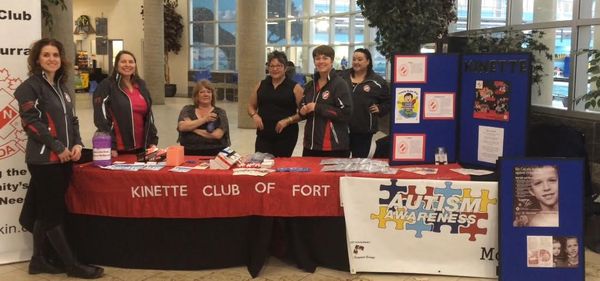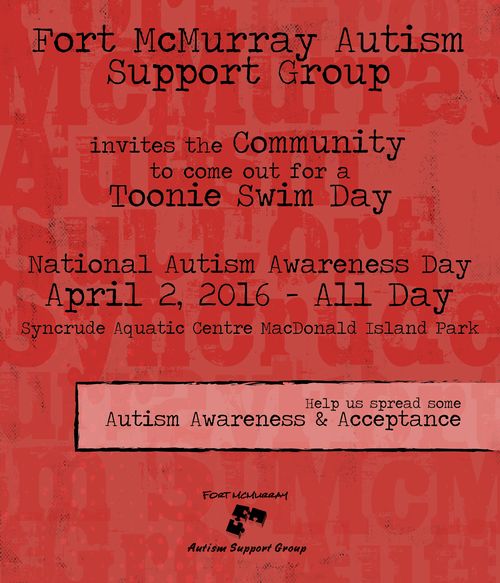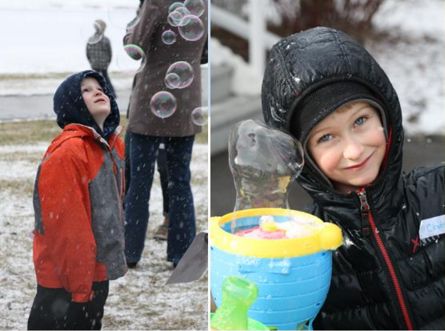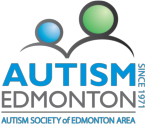Stepping Out of My Comfort Zone
 Up until this year, the mention of a play date for Conor sent my blood pressure sky high and stress levels through the roof! I had tried so many times to organize them for him, and pretty much every one ended in disaster. You know what I mean – you apologize to the other parent, you feel terrible because the other child has not had a good time, and after all that you still have to deal with a very escalated child because the whole experience has been too overwhelming for them.
Up until this year, the mention of a play date for Conor sent my blood pressure sky high and stress levels through the roof! I had tried so many times to organize them for him, and pretty much every one ended in disaster. You know what I mean – you apologize to the other parent, you feel terrible because the other child has not had a good time, and after all that you still have to deal with a very escalated child because the whole experience has been too overwhelming for them. We planned snacks and what to do when he was in the ‘yellow zone’. Conor had set up a quiet corner, so he knew that would be a good place to go to for a break. When movement breaks were needed, he came up with the options of playing outside, playing a Wii sports game, or using his sensory equipment. Lastly, we practiced saying goodbye when the time came. I made sure that I had extra support because I knew that this would be essential for both of us!
We planned snacks and what to do when he was in the ‘yellow zone’. Conor had set up a quiet corner, so he knew that would be a good place to go to for a break. When movement breaks were needed, he came up with the options of playing outside, playing a Wii sports game, or using his sensory equipment. Lastly, we practiced saying goodbye when the time came. I made sure that I had extra support because I knew that this would be essential for both of us!
Jeff’s Marathon for Autism
 One of the greatest things about having a child diagnosed with autism is the way it enriches our lives. Autism pushes us off what we thought would be a comfortable, familiar path into a new world. Because we want the very best for our kids with autism we steadfastly face situations we’d rather not have to deal with. We challenge ourselves to stretch our capacity to create a better world, so our kids can have the best futures possible. In stretching ourselves for our kids, we find ourselves growing in ways we had never imagined.
One of the greatest things about having a child diagnosed with autism is the way it enriches our lives. Autism pushes us off what we thought would be a comfortable, familiar path into a new world. Because we want the very best for our kids with autism we steadfastly face situations we’d rather not have to deal with. We challenge ourselves to stretch our capacity to create a better world, so our kids can have the best futures possible. In stretching ourselves for our kids, we find ourselves growing in ways we had never imagined. Jeff was lucky. His application was selected for the New York City Marathon on November 6, 2016. Jeff’s marathon run will raise funds for the Fort McMurray Autism Support Group, which operates under the auspices of Autism Alberta.
Jeff was lucky. His application was selected for the New York City Marathon on November 6, 2016. Jeff’s marathon run will raise funds for the Fort McMurray Autism Support Group, which operates under the auspices of Autism Alberta.March Updates from FMASG
Kirsti Mardell
On March 13th, Fort McMurray Autism Support Group had a Family Fun Day out at Tour North Ranch. There were two full hay rides with a big fire. Kids got to roast hot dogs and marshmallows. The kids and some adults went sledding down the big hill Tour North Ranch has, and finished it off with some hot chocolate. It was a beautiful day for our families to get together and enjoy.
Fort McMurray Autism Support Group would also like to thank the Kinette Club of Fort McMurray. On February 16th, the Kinette Club of Fort McMurray hosted a Charity Swim Day. The community was invited down to MacDonald Island Park to go swimming for a donation. On March 16th the Kinette Club also hosted a pot luck dinner and presented a donation check to the Fort McMurray Autism Support Group. Thanks to the Kinette Club for their support!
On March 25th, Fort McMurray Autism Support group, supported by Dunvegan Gardens, will be hosting our first Easter Egg Hunt. Children with special needs and children under 2 years old are free to come; for all other siblings it will be a $5 fee for a ticket to participate. Participants are responsible for bringing their own Easter Basket. Event will start at 2pm down at Dunvegan Gardens. This is a private event put on by the Fort McMurray Autism Support Group, for more info please contact the Fort McMurray Autism Support Group.
April 2nd is National Autism Awareness day. Fort McMurray Autism Support Group will be hosting a Toonie Swim Day All Day at MacDonald Island park. The community is invited to come out and support the 3 A’s: Autism, Awareness and Acceptance. There will be a table with info on autism and our Facebook Group. We will also have our Kid’s First Camp Water bottles for sale as well as Autism Pins and Lanyards.
Click the poster to see a larger version
On April 9th at 2pm Fort McMurray Autism Support Group will be hosting a Press Conference at McDonald Island Park in the main concourse to say "Thank You" to our community supporters. The event will feature guest speaker Jessica Pigeau of Edmonton Alberta, an adult with autism. There will be plaques to handed out, and everyone who has supported us over the last five years will be invited to attend.
Click the poster to see a larger version
Bubbles for Autism in Red Deer

Blowing bubbles for ACCEPTANCE & AWARENESS
Please come on out to Parkland Class Accessibility playground and join us in recognizing Autism awareness by blowing bubbles and celebrating the amazing diversity in our community. Don’t forget to wear BLUE!
Parkland School Accessibility Playground
6016 – 45 Ave Red Deer
Bubbles Provided! Free Refreshments!
Taking Care of Ourselves

I have worked for a number of years as a researcher in autism issues. One problem that troubles me is the challenge of what is known in the literature and how that research gets translated into solutions that help people in real life. In particular, the research on stress for the primary caregivers specific to autism is concerning. If you are happy, healthy (mentally and physically) and feel little stress then you likely do not need to read this article, but if you are struggling for a number of reasons, please read on.
 Being a caregiver for a child or adult with ASD can be hard. Of course there are positive aspects of caregiving, but there are also lots of challenges. I was asked a few years ago by an autism agency, ‘What can we tell parents that will make them take care of their own health, too?’
Being a caregiver for a child or adult with ASD can be hard. Of course there are positive aspects of caregiving, but there are also lots of challenges. I was asked a few years ago by an autism agency, ‘What can we tell parents that will make them take care of their own health, too?’-
Financial Impact: Financial consequences of lifelong caregiving are higher than for other families. Three main reasons for this are: lost income of the primary caregiver, lost income of the adolescent/adult with ASD due to poor employment outcomes, and added out-of-pocket expenses.
-
Increased Chronic Stress: Lifelong chronic stress can impact mental health and physical health. Chronic stress can result in depression and anxiety. Chronic stress can also shorten telomeres (the ends of the chromosomes) that contribute to increased illness and aging.
-
Lack of time: Due to the increased supports beyond those needed by ‘normal’ children, many of us have less time for ourselves to participate in work, recreation or social events in comparison to other parents.

- Start the Registered Disability Savings Plan if you have not already. Small amounts contributed early on, with compound interest, can add up to a significant amount of money
- Consider your work situation. Explore opportunities to work flexible work hours with employers who understand flexible needs, work from home (if that seems appealing), change your profession, upgrade skills, start your own business, or continue to work to full time in a demanding career if you can find and/or pay for the added help you may need.
- Capitalize on all tax credits and benefits available to you.
Medical Sensory Series Helps Families Take Kids to the Doctor and Dentist
Deborah Barrett and Lauren McGuinness
 Autism Edmonton, in partnership with Children’s Autism Service of Edmonton, wanted to help families and kids on the spectrum have better experiences. They realized that most children on the spectrum have many sensory issues that make going to the doctor or the dentist particularly scary and anxiety-producing for kids. So, they offered the Medical Sensory Series to help families deal with going to the doctor and going to the dentist. Here’s what they did:
Autism Edmonton, in partnership with Children’s Autism Service of Edmonton, wanted to help families and kids on the spectrum have better experiences. They realized that most children on the spectrum have many sensory issues that make going to the doctor or the dentist particularly scary and anxiety-producing for kids. So, they offered the Medical Sensory Series to help families deal with going to the doctor and going to the dentist. Here’s what they did: One little girl had a traumatizing experience with the weigh scale at a previous visit to the doctor years ago. In her second Happy visit she was enjoying the play and fun that was being had in the examination room, and before they all knew it she was standing on the scale! Her mother couldn’t believe it, and told us how they had to weigh her while her mother held her for the last several years. Her fear had been transformed into a sense of being able to cope with the new room and it was clear that new, positive associations had been made in this space.
One little girl had a traumatizing experience with the weigh scale at a previous visit to the doctor years ago. In her second Happy visit she was enjoying the play and fun that was being had in the examination room, and before they all knew it she was standing on the scale! Her mother couldn’t believe it, and told us how they had to weigh her while her mother held her for the last several years. Her fear had been transformed into a sense of being able to cope with the new room and it was clear that new, positive associations had been made in this space.Exciting New Services for Adults with ASD in the Edmonton Area
 Following the recommendations of the report, with additional support from the Sinneave Family Foundation, and a partnership between GRH, Edmonton Oliver PCN, Alberta Health Services Addictions and Mental Health, a demonstration project was initiated.
Following the recommendations of the report, with additional support from the Sinneave Family Foundation, and a partnership between GRH, Edmonton Oliver PCN, Alberta Health Services Addictions and Mental Health, a demonstration project was initiated.Director, Pediatric Rehabilitation
Neurodevelopmental Pediatrics
Teaching Associate Professor of Pediatrics, University of Alberta
Fail-Proof
 It would seem the day-to-day functions of a family continue to overwhelm me. To make matters more interesting, Mr. P has been gone for a couple of weeks, which means I’m also in charge of the ‘blue jobs’ in our home. (Yes, I said ‘blue jobs’ – I’m a strong believer in equality – except when it comes to shovelling the walk and taking out the garbage. Those jobs are blue jobs. lol) So this morning I was extra unorganized, as I hadn’t planned on needing to get the sidewalk shovelled before getting the kids to school. Turns out, despite the cold, shovelling the walk can be a mind-calming experience. In fact, while I was out there my mind drifted to last Tuesday when I stood in for one of Mr. P’s other blue jobs by taking the Captain to soccer. There was a young man there, about the age of my big kid, standing in goal spouting encouraging words and throwing high-fives. He was obviously not a participant in the adapted program, but an older sibling to one of the children on the Captain’s team.
It would seem the day-to-day functions of a family continue to overwhelm me. To make matters more interesting, Mr. P has been gone for a couple of weeks, which means I’m also in charge of the ‘blue jobs’ in our home. (Yes, I said ‘blue jobs’ – I’m a strong believer in equality – except when it comes to shovelling the walk and taking out the garbage. Those jobs are blue jobs. lol) So this morning I was extra unorganized, as I hadn’t planned on needing to get the sidewalk shovelled before getting the kids to school. Turns out, despite the cold, shovelling the walk can be a mind-calming experience. In fact, while I was out there my mind drifted to last Tuesday when I stood in for one of Mr. P’s other blue jobs by taking the Captain to soccer. There was a young man there, about the age of my big kid, standing in goal spouting encouraging words and throwing high-fives. He was obviously not a participant in the adapted program, but an older sibling to one of the children on the Captain’s team.
 She’s always been like this – which is incredibly lucky for me because since the arrival of her little brother, I’ve needed an extra set of eyes to help with the basic day-to-day moments life throws our way. I remember one morning about four years ago I was trying to get ready for work when I heard the big kid yelling at me over the sound of the hair dryer. I went flying into the kitchen to find a one-year-old Captain sitting on top of the counter, pouring hot coffee onto his sister. Her eyes were wet with tears, but her arms were up and she would not leave his side. After simultaneously grabbing the coffee pot from the baby, placing the baby on my hip and pushing my little girl away from the hot contents on the counter, I spun on my heel to see if she was okay.
She’s always been like this – which is incredibly lucky for me because since the arrival of her little brother, I’ve needed an extra set of eyes to help with the basic day-to-day moments life throws our way. I remember one morning about four years ago I was trying to get ready for work when I heard the big kid yelling at me over the sound of the hair dryer. I went flying into the kitchen to find a one-year-old Captain sitting on top of the counter, pouring hot coffee onto his sister. Her eyes were wet with tears, but her arms were up and she would not leave his side. After simultaneously grabbing the coffee pot from the baby, placing the baby on my hip and pushing my little girl away from the hot contents on the counter, I spun on my heel to see if she was okay.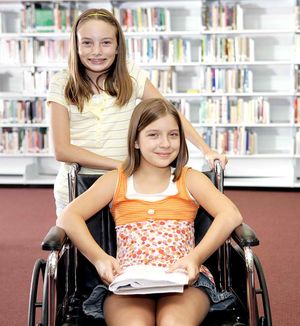 Last year I was having yet another stretch when I felt I was failing on all fronts – the house was a mess, the dog hadn’t been walked in weeks, the Captain was deviant little disaster, and the PTA meetings remained unattended. I went to pick up my daughter from school one day and noticed a little girl coming out of her classroom earlier than the rest of the kids. Her aide helped her to her locker to pack up her gear, then helped her into her wheelchair and wheeled her down the hall.
Last year I was having yet another stretch when I felt I was failing on all fronts – the house was a mess, the dog hadn’t been walked in weeks, the Captain was deviant little disaster, and the PTA meetings remained unattended. I went to pick up my daughter from school one day and noticed a little girl coming out of her classroom earlier than the rest of the kids. Her aide helped her to her locker to pack up her gear, then helped her into her wheelchair and wheeled her down the hall.
Princess P had never mentioned anything about a kid in her class having a physical disability. When I quizzed her on it after school I was shocked to discover the student was one of her best friends – a kid I heard about a million times – but never, ever, did I hear about a wheel chair. When I asked her why she hadn’t mentioned it, she just shrugged her shoulders with that you’re-boring-me-mom sentiment shared by all children her age. It was her passive/productive way of reminding me it was a non-issue.
We Want to Hear From You!
Autism Calgary Celebrates Autism Awareness Day
Click the poster to see a larger version
Special Presentation: Autism in Mainstream Media
The viewing will be held at the Bill Black Auditorium at the Glenrose Hospital (10230 111 Ave, Edmonton, AB).
Autism Canada Builds Its Nationwide Network

Autism Canada is thrilled to be celebrating 40 years of hope advocacy and support. While we are proud of what we have accomplished, there is still much work to be done. We are focused on bringing ASD adults together to share and grow, to advocate at the federal level and to continue fulfilling our role as a national knowledge hub providing current and timely information to the ASD community.
 Our ASD Advisory Committee has several exciting projects in the works. ASD Central, Canada’s Facebook Forum for Adults on the Spectrum, is a place of conversation, sharing and mentoring. This group is the only one of its kind in Canada, and we couldn’t be more proud of all the participants who make it possible. On the west coast, this same ASD Advisory Committee is involved in an adult-focused conference taking place on April 1st in Terrace, BC. Autism Canada is proud to be involved in recording the presentations for future viewing by the ASD community. In Ontario, we will be co-hosting an ASD adult conference in August of this year. The focus of this one-day event is brining ASD adults together to learn and share amongst their peers in a space that is comfortable, accommodating and autism-friendly. We will be happy to share more details as they are confirmed.
Our ASD Advisory Committee has several exciting projects in the works. ASD Central, Canada’s Facebook Forum for Adults on the Spectrum, is a place of conversation, sharing and mentoring. This group is the only one of its kind in Canada, and we couldn’t be more proud of all the participants who make it possible. On the west coast, this same ASD Advisory Committee is involved in an adult-focused conference taking place on April 1st in Terrace, BC. Autism Canada is proud to be involved in recording the presentations for future viewing by the ASD community. In Ontario, we will be co-hosting an ASD adult conference in August of this year. The focus of this one-day event is brining ASD adults together to learn and share amongst their peers in a space that is comfortable, accommodating and autism-friendly. We will be happy to share more details as they are confirmed.Autism Physician Handbook


Dr. Wendy Edwards, Pediatrician
Chatham, ON
Want to Reduce Your Taxes?

To qualify for the Disability Tax Credit, you have to fill out form T2201, Disability Tax Credit Certificate, and have it approved by the Canada Revenue Agency (CRA). You can click here to see if you may qualify for the Disability Tax Credit. To find out more about the Disability Tax Credit, click here.


